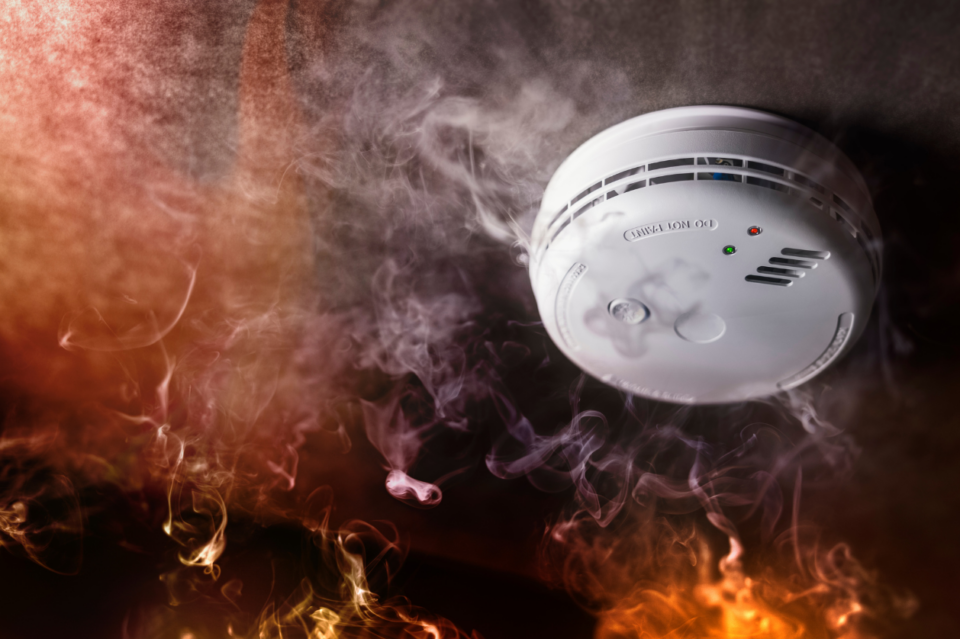2023 Update to Illinois Smoke Detector Act: What Do Illinois Community Associations Need to Know?
Date
March 21, 2023
Read Time
4 minutes
Share

In August of 2017, the Illinois Smoke Detector Act (“Act”) was amended to include additional requirements for smoke detectors in residences, and these new requirements took effect on January 1, 2023. In general, the Act (i) phases out older-model smoke detectors with removable short-term batteries that need more frequent battery replacement; and (ii) requires that such older-model smoke detectors be replaced with smoke detectors that are hardwired or have a non-removable 10-year battery. The amendment to the Act reflects updates in smoke detector technology and has a few notable exceptions. Specific questions regarding amendments to the Act regarding smoke detector battery requirements are answered below.
What Are the New Smoke Detector Battery Requirements?
Battery-powered smoke detectors must have a “self-contained, non-removable, long term” battery. Per the Illinois Fire Safety Alliance, this means a 10-year sealed battery is required for battery-powered smoke detectors in Illinois residences.
Do the New Battery Requirements in the Act Apply to Condominium Units?
The answer depends on the location of the condominium building. The Act applies to all Illinois dwelling units in condominium buildings within Illinois except those located in Chicago (more than 1,000,000 inhabitants). However, a City of Chicago Ordinance (“Ordinance”) adopted in 2021 aligns with the new smoke detector battery mandate and phasing out of older model smoke detectors under the Act and requires that new or replacement smoke detectors in condominium units located in Chicago be hardwired or powered by sealed batteries. As such and per the Ordinance, any new or replacement smoke detectors in Chicago condominium units must be hardwired or powered by sealed batteries.
What About Condominium Common Elements (E.g., Hallway Corridors)?
Yes, the new 10-year sealed battery requirement under the Act applies to common elements such as hallway corridors, party rooms, etc. This is the case for common elements in all Illinois condominium buildings, including those located in Chicago (this is different from the exemption in the Act noted above for Chicago condominium dwelling units).
Are There Exceptions to the New Battery Requirements?
Yes, the 10-year sealed battery requirement for smoke detectors per the Act does not apply to:
- Smoke detectors that are (i) less than 10 years old (from the date of manufacture); (ii) still work; (iii) respond to operability tests; and (iv) are not newly installed.
Note: older-model smoke detectors with removable short-term batteries are not required to be replaced right away if they satisfy all of the above criteria and remain exempt until at least one of the criteria is no longer met; however, replacement of older model smoke detectors, even if not yet required under the Act, is prudent as an additional safety precaution.
- Smoke detectors that are “electronically connected as a part of a centrally monitored system”, use “low-power radio frequency wireless communication signal” or “Wi-Fi or other wireless Local Area Networking capability to send and receive notifications to and from the Internet, such as early low battery warnings before the device reaches a critical low power level.”
- Devices the State Fire Marshall designates as exempt.
- Hardwired smoke detectors (i.e., smoke detectors that are not battery powered).
What Are the Penalties for Non-Compliance?
Per the Act, a 90-day notice will be issued for any violation of the 10-year sealed battery requirement. Violations that are not cured within 90 days of such notice are subject to a fine of up to $100, plus an additional fine of $100 for “every 30 days thereafter until either the violation is rectified or the cumulative amount of fines assessed reaches $1,500.” Note: The Chicago Ordinance imposes stiffer penalties for non-compliance with the requirements of the Ordinance.
Who is Responsible for Complying with the New Battery Requirements?
Per the Act, the owner of the “structure” is responsible for compliance with the new 10-year sealed battery requirements. This means that condominium associations are responsible for ensuring compliance for smoke detectors located in the common elements, and unit owners are responsible for compliance for their in-unit smoke detectors (subject to the exemptions noted above).
Where Can I Find Text of the Updated Act?
Text of the updated Act is available here.
LP is committed to keeping our community association clients informed of, and prepared to proactively and successfully navigate, any changes in the law. For questions regarding the installation of electric vehicle charging stations or other issues facing your condominium or community association, please contact Howard Dakoff, Laura Marinelli, Adam Kahn, or Molly Mackey of LP’s Community Association Group.